2020 Election Year to Feature Bitter Fights, Mudslinging
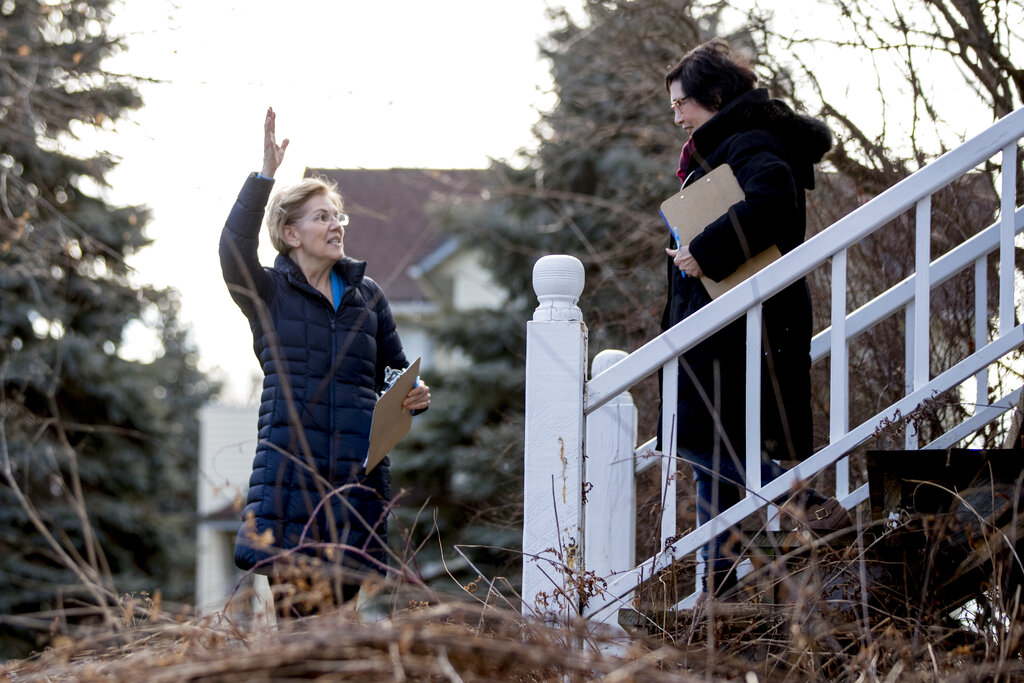
Democrats are taking aim at Donald Trump
Jill Biden says American people know Joe Biden isn’t racist
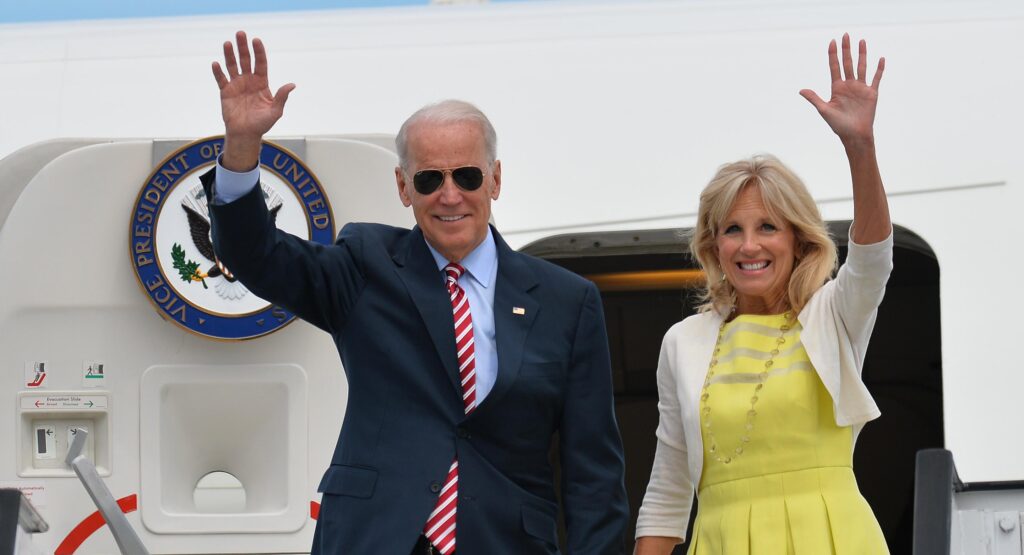
Jill Biden says the American people “didn’t buy” any insinuation during the Democratic presidential debate that her husband, former Vice President Joe Biden, is racist. In an interview that aired Monday on CNN, the former second lady was asked about Sen. Kamala Harris’ comments last month. The California senator started out by saying she didn’t think Joe Biden was racist, but she criticized him for defending his work with segregationist senators and for opposing mandatory busing of students to desegregated public schools.Jill Biden says as soon as she heard the words “I do not believe you are a racist,” she thought, “Uh oh, what’s coming next?” She says, “The American people know Joe Biden. They know his values. They know what he stands for. And they didn’t buy it.” Republished with the permission of the Associated Press.
Climate change champion and Donald Trump impeachment advocate Tom Steyer launches 2020 campaign
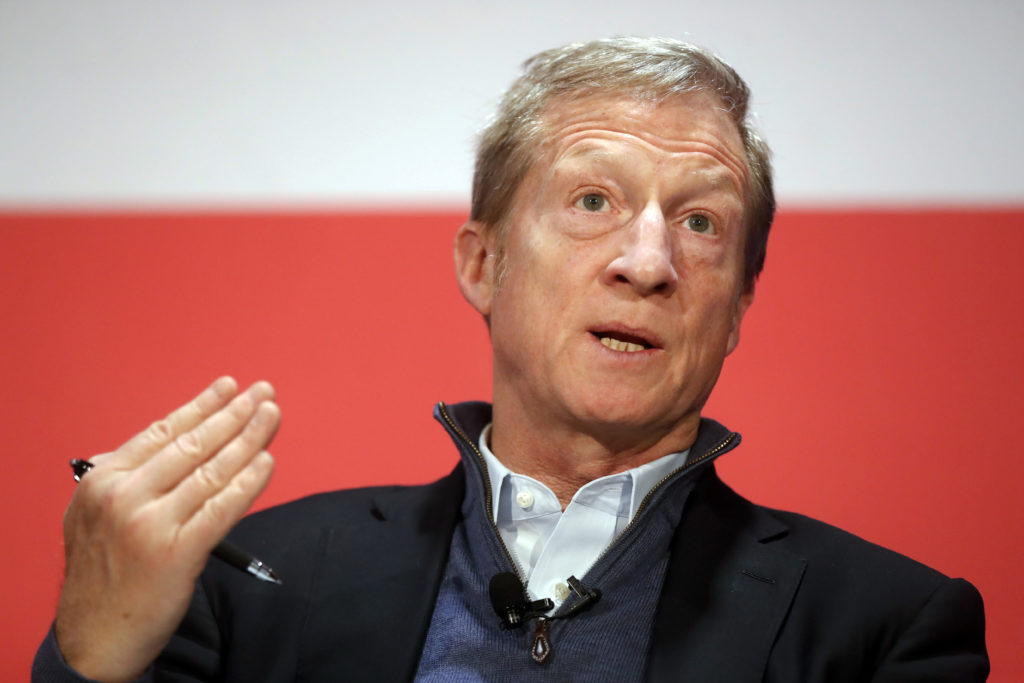
Tom Steyer, the billionaire investor and activist, said Tuesday he’s joining the race for the Democratic presidential nomination, reversing course after deciding earlier this year that he would forgo a run. Steyer, 62, is one of the most visible and deep-pocketed liberals advocating for President Donald Trump’s impeachment. He surprised many Democrats in January when he traveled to Iowa, home to the nation’s first presidential caucus, to declare that he would focus entirely on the impeachment effort instead of seeking the White House. Since then, Steyer, of California, has said he’s grown frustrated at the pace at which the Democratic-controlled House is approaching Trump. Roughly half of the Democratic presidential contenders, seeking to appeal to the party’s progressive base, have called on House Democrats to start an impeachment inquiry. But Speaker Nancy Pelosi has resisted, warning that Democrats need to collect the facts and that a rush to impeachment could ultimately help Trump politically. Despite becoming a national voice on the impeachment issue, Steyer made no mention of it in his campaign announcement. Instead, he said his campaign will focus on reducing the influence of corporations in politics. He also plans to target climate change, which is the focus of the Steyer-backed advocacy group NextGen America. Washington Gov. Jay Inslee, another Democratic presidential contender, also has made climate change the central issue of his campaign. “The other Democratic candidates for President have many great ideas that will absolutely move our country forward, but we won’t be able to get any of those done until we end the hostile corporate takeover of our democracy,” Steyer said in a statement. Citing issues including climate change and the opioid crisis, Steyer said that in nearly every “major intractable problem, at the back of it, you see a big money interest for whom stopping progress, stopping justice is really important to their bottom line.” “Americans are deeply disappointed and hurt by the way they’re treated by what they see as the power elite in Washington, D.C., and that goes across party lines and it goes across democracy,” Steyer said in a video his campaign was releasing Tuesday. “We’ve got to take the corporate control out of our politics.” As he seeks the presidency, Steyer is resigning his leadership positions in both NextGen America and Need to Impeach. He says he has committed more than $50 million through 2020 to the two organizations. Steyer joins the race three weeks before the next presidential debates , and he could struggle to get a spot on the stage. He likely won’t meet polling requirements to participate but could clear a fundraising threshold.There are 20 spots at the debate for a field that includes two dozen candidates . If more than 20 people qualify, the Democratic National Committee will hold a tiebreaker to determine who gets on stage. Steyer also could potentially face challenges hiring staff. Several of his former NextGen America staffers have joined Inslee’s campaign. A former Steyer spokeswoman, Aleigha Cavalier, recently joined Beto O’Rourke’s 2020 campaign. The sprawling Democratic field is in flux as Steyer becomes the newest contender. Some lower-tier candidates are facing increasingly dire prospects if they don’t secure spots on the debate stage this fall.California Rep. Eric Swalwell exited the race on Monday , and former Colorado Gov. John Hickenlooper’s campaign has undergone a shake-up after his debate performance last month, with some staffers encouraging him to consider a Senate campaign instead. This is not the first time Steyer has considered running for office. He eyed bids for governor of California in 2018 and the Senate in 2016. His net worth, according to Forbes, is estimated at $1.6 billion. Republished with the permission of the Associated Press.
Judge: Alabama won’t be ordered to redistrict before 2020

A federal judge says a lawsuit challenging Alabama’s congressional districts will go forward, but the state can’t be forced to redraw lines before 2020. U.S. District Judge Karon Bowdre issued the decision Wednesday. Eight African-American voters filed the 2018 voting rights lawsuit contending the state illegally packs minority voters into a single congressional district. The lawsuit contends Alabama should have two majority-minority districts. Citing a delay in filing the lawsuit, Bowdre said Alabama would be harmed if it is forced to redistrict twice in two years. However, Bowdre said if the current map is ruled unconstitutional, Alabama couldn’t use it as the basis for drawing new lines in 2021. Attorney General Steve Marshall says he was pleased the judge agreed plaintiffs “waited too long to file their legal challenge.” Republished with permission from the Associated Press.
Donald Trump’s budget proposal offers preview of upcoming campaign

Frustrated by a divided Congress and rifts within his own party, President Donald Trump is giving little indication in his latest budget proposal of any new policy ambitions for the coming two, or six, years. Trump’s budget plan increases spending on his border wall and the military but is light on fresh ideas heading into his re-election campaign. His budget for the next fiscal year, which has little chance of advancing in Congress, largely focuses on deep spending cuts and pushing more money toward established goals such as his long-promised wall, improving care of veterans and combating opioid abuse. Budgets may offer a president’s vision for the direction of the nation, but Trump’s latest also offers an early window into his upcoming campaign. With the Democratic race to unseat him heating up, Trump is contending with middling approval ratings, energized Democrats and political vulnerabilities in critical states. Like his predecessors, he’ll soon be called on to complete the politically loaded phrase, “Send me back to the White House so that I can …” “I think, as he gets closer to 2020, he will need to lay out what a second term would look like,” said Republican consultant Alex Conant. “Voters always want to know, ‘What have you done for me lately?’ If he doesn’t paint a picture of what his second term will look like, then the Democrats will do it for him.” The White House argues that Trump isn’t just advancing the same policies a second time over, he’s enhancing them with more detail than his first go-round, particularly in the area of trade policy. Following a State of the Union address that contained little new policy, the budget is hardly a surprise. Still, the budget can serve more than one political purpose, argued former Trump campaign aide Barry Bennett, who said the document highlights Trump’s clashes with Democrats over border and military funding. He argued that the Democratic tilt to the left also will benefit Trump as he seeks to frame the argument. Bennett said Trump’s pitch can be: “If your paycheck likes what I’ve done, send me back. If you don’t, they’ll undo it all.” Trump has already addressed much of his laundry-list agenda from 2016, notching victories in many areas while seeking to minimize losses and mixed results. He has cut taxes, exited global accords and installed conservative judges on the courts, including two Supreme Court justices. He has not succeeded in replacing President Barack Obama’s health care law, is still working on renegotiating trade deals and has struggled to secure all the funding he wants for his border wall. In all, the efforts have largely pleased his political base, but satisfaction with past performance is hardly a reliable tactic for expanding your support. Thus far, Trump’s re-election campaign moves have been laser-focused on maintaining his most ardent supporters. It’s a risky wager, laid down by the president himself, that he can overcome weakness with moderate and independent voters by turning out even more loyalists in 2020 than he did in 2016. During his aggressive push to maintain the GOP’s hold over the Senate during the midterm elections, Trump emphasized his hardline immigration rhetoric above all else. He has returned again and again to his long-promised border wall, even forcing the government to partially shut down in an effort to win funding. The latest budget also calls for repealing “Obamacare,” limiting future federal spending on Medicaid for people with lower incomes, as well as breaking out the new Space Force as its own military branch. “We believe that every budget is an opportunity to put forward our vision for the next 10 years,” said acting budget director Russell Vought. Trump’s gamble has skeptics among some in the president’s inner circle, who have pushed the president and the White House to embrace larger policy ideas designed to win over moderates and independents. Aides point to Trump’s cautious embrace of a family medical leave policy pushed by his daughter, Ivanka Trump, as the sort of proposal Trump’s team should spend more time developing ahead of 2020. She is backing new funding for child care in the current proposal. A White House-backed infrastructure plan, the hobbyhorse of Washington election year policy, appears no closer to fruition than when Trump first raised it two years ago, with his budget allocation unchanged from previous years. Trump’s nascent re-election campaign has just begun staffing-up for 2020, with a focus on developing a more professionalized operation than 2016, but has yet to announce a policy staff. Trump’s light policy load is also a function of his increasingly strained relationship with Congress. Under divided control, the White House views it as unlikely that any new proposals can win legislative approval — and plan to be judicious about sending anything to Capitol Hill only to see it defeated. Republished with permission from the Associated Press.
Hillary Clinton rules out 2020 rematch with Donald Trump
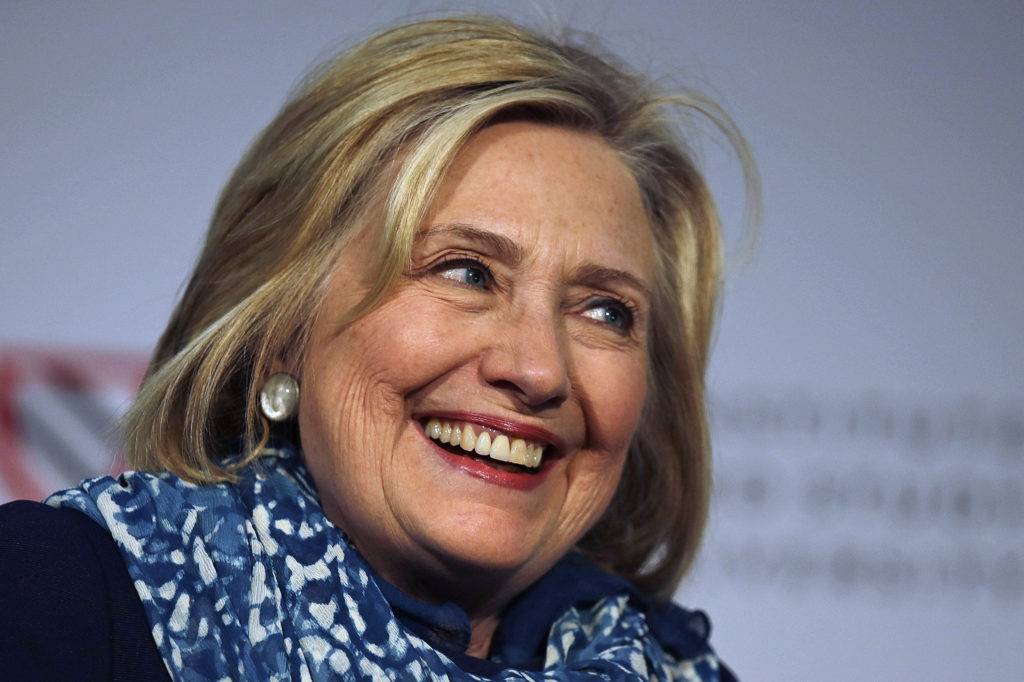
Hillary Clinton says she won’t run for president in 2020, but vows she’s “not going anywhere.” The former secretary of state, senator and first lady ruled out another campaign during an interview posted Monday by New York TV station News12 . Clinton, who lost the 2016 presidential election to Donald Trump, says, “I’m going to keep on working and speaking and standing up for what I believe.” She says, “What’s at stake in our country, the kind of things that are happening right now are deeply troubling to me.” She says she has spoken with several of the candidates seeking the Democratic presidential nomination, and has told them, “Don’t take anything for granted, even though we have a long list of real problems and broken promises” from the Trump administration. Republished with permission from the Associated Press.
Bill Clinton has 2020 advice, but few candidates seeking it
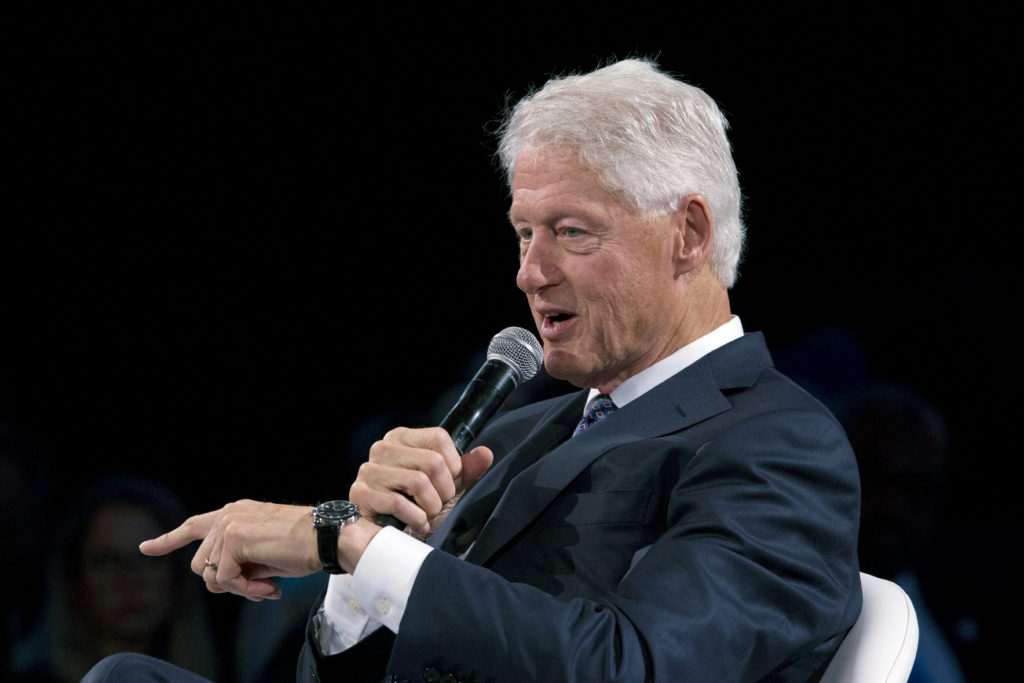
Nearly 20 years after he left the White House, Bill Clinton is still sought after for advice by some Democrats running for president. But the names on his dance card in recent months underscore how much his standing in the party has changed. So far, none of the party’s early front-runners has had a formal meeting with Clinton. Nor have the women who are running in the historically diverse primary field. Instead, Clinton has spoken mostly with male candidates who are considered longshots for the Democratic nomination, including Montana Gov. Steve Bullock, former Housing secretary Julian Castro and former Maryland Rep. John Delaney. Clinton remains one of Democrats’ most successful politicians of the last half-century and one of its strongest messengers on the economy. Yet the party has shifted considerably to the left since his two terms in White House, and his personal baggage — as well as lingering hostilities from his wife Hillary Clinton’s failed 2016 campaign — make him an awkward adviser for some in his party’s next class of presidential hopefuls. Tensions run particularly deep between the Clintons and Vermont Sen. Bernie Sanders, who has launched another bid for the White House. The Clintons blame Sanders for damaging Hillary Clinton during the 2016 primary. And as they assess the 2020 field, the Clintons don’t believe Sanders is capable of beating Trump, according to those who have spoken with them. “I think that at some point bygones can be bygones, but what you can’t get around is the electability question,” said David Brock, a longtime Clinton ally. Neither side tried to mask the tensions in the days since Sanders launched his 2020 campaign. When asked Friday on ABC’s “The View” whether he would seek campaign advice from Hillary Clinton, Sanders said: “I think not.” There was not much warmth between Sanders and Hillary Clinton on Sunday when the two were in Selma, Alabama, to mark the 54th anniversary of the “Bloody Sunday” clash. Bill Clinton has offered advice to a handful of candidates, sometimes meeting them at his New York office or speaking to them by phone. Former Colorado Gov. John Hickenlooper was meeting with Hillary Clinton at the couple’s Chappaqua, New York, home when the former president stopped by and sat in on the rest of the meeting. Castro, the former secretary of Housing and Urban Development, said he spoke with Clinton in January and “got some good advice,” though he wouldn’t elaborate on what they discussed. Others discussed meetings with Clinton on the condition of anonymity in order to speak about the private conversations. Clinton’s friends say he still relishes the political debate and is closely monitoring early developments in the primary. While he doesn’t have much of a relationship with some of the younger White House hopefuls, like Beto O’Rourke, some of his contemporaries are considering running, including former New York Mayor Michael Bloomberg and former Vice President Joe Biden. Neither has had a formal meeting with Clinton about the campaign, but they’ve talked politics with him for years. The 72-year-old former president rarely offers tactical advice about how to structure a campaign, according to people with knowledge of the conversations. He’s said to be well-aware that technology and campaign tactics have significantly evolved since he was last on the ballot in 1996. But the famously verbose Clinton does dive deep into policy and offers advice on how to appeal to the same economic anxiety that drove some white, working-class voters to side with Trump over his wife. Clinton’s focus on white, working-class voters became something of a joke within his wife’s 2016 campaign, with aides privately mocking his insistence on plunging more energy and resources into states like Michigan and Wisconsin. Top campaign advisers believed they didn’t need to invest heavily in those reliably Democratic states, then watched Trump narrowly edge Clinton out in the upper Midwest on his way to the presidency. Some progressives say that while they agree Democrats can’t turn their backs on white, working-class voters, they see Clinton’s more centrist approach to winning back those voters as a throwback to an era — and a party — that no longer exists. “Times have changed,” said Adam Green, co-founder of the Progressive Change Campaign Committee, a liberal group that has endorsed Massachusetts Sen. Elizabeth Warren. “The center of gravity within the Democratic Party and the electorate overall has moved massively in a more populist direction.” Indeed, some of Clinton’s signature policies — including the North America Free Trade Agreement and the 1994 crime bill — are out of step with the mainstream of the Democratic Party. Clinton himself has acknowledged that the crime bill worsened the problem of mass incarcerations, particularly among black men. It’s Clinton’s personal baggage that has created another uncomfortable dynamic with Democrats running for the White House. New York Sen. Kirsten Gillibrand, who had been backed by the couple throughout her political career, said Clinton should have resigned from office because of his affair with a White House intern. The former president has tried to publicly brush off the comment, saying Gillibrand — a leading Senate voice on sexual harassment and assault — is “living in a different context.” But Clinton allies say the couple’s anger at Gillibrand runs deep and their relationship may be irreparable. Other women seeking the Democratic nomination also haven’t met with Clinton, including Warren and California Sen. Kamala Harris. Minnesota Sen. Amy Klobuchar spoke with Clinton briefly at last month’s funeral for John Dingell, the retired Democratic congressman. 2020 wouldn’t be the first time Clinton has been sidelined in part because of his personal transgressions. His own vice president, Al Gore, distanced himself from Clinton during the 2000 campaign, a move some Democrats still see as a mistake. But views on Clinton shifted, and by 2012, he was considered one of the strongest surrogates for Barack Obama’s re-election campaign. In a shot at those who see Clinton as an albatross this time around, one ally of the former president referenced Gore
Washington Gov. Jay Inslee joins Democratic presidential field
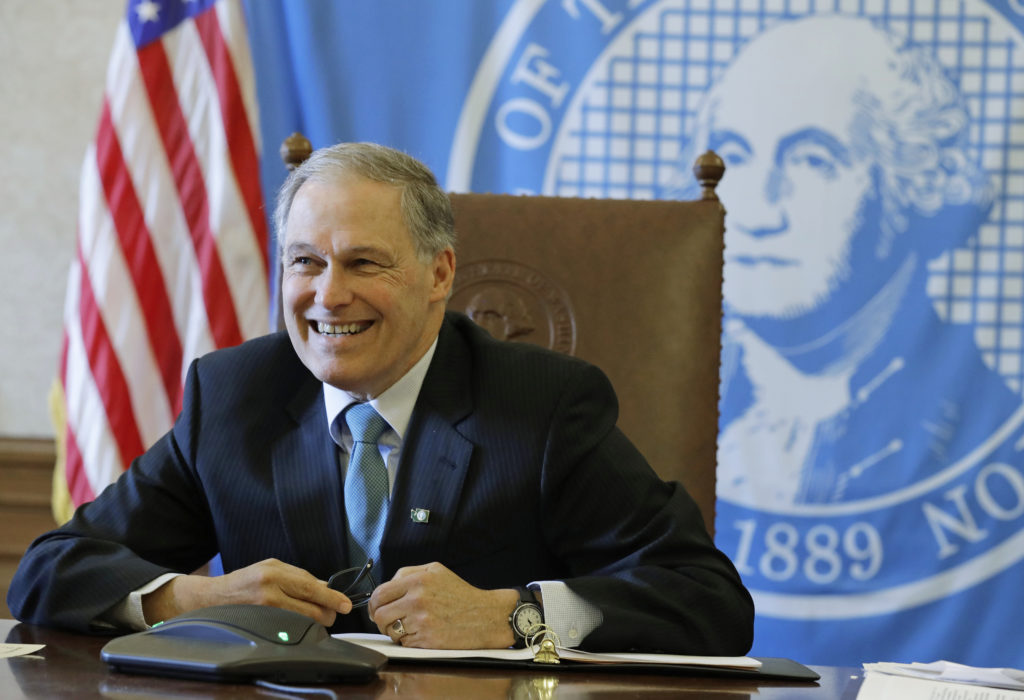
Washington Gov. Jay Inslee will seek the 2020 Democratic presidential nomination, mixing calls for combating climate change and highlights of his liberal record with an aggressive critique of President Donald Trump. The 68-year-old governor is launching his bid Friday in Seattle, following recent visits to the first primary state of New Hampshire and the early caucus state of Nevada. “We went to the moon and created technologies that have changed the world — our country’s next mission must be to rise up to the most urgent challenge of our time: defeating climate change,” Inslee says in a video announcement ahead of a public announcement later Friday in Seattle. Inslee is the first governor to join a Democratic primary that has been dominated by senators. Montana Gov. Steve Bullock and former Colorado Gov. John Hickenlooper are eyeing presidential campaigns. It will not be easy for Inslee to garner attention with six prominent senators — Cory Booker of New Jersey, Kirsten Gillibrand of New York, Kamala Harris of California, Amy Klobuchar of Minnesota, Bernie Sanders of Vermont and Elizabeth Warren of Massachusetts — already running. Former Vice President Joe Biden and former Texas Rep. Beto O’Rourke also are expected to make highly anticipated 2020 announcements in the coming weeks. Inslee acknowledges his underdog status but says his emphasis on combating climate change will set him apart. “Climate change is a unifying issue,” Inslee told The Associated Press in a recent interview, calling it a moral necessity and an economic opportunity. He promises substantial investment in clean energy sources that reduce American dependence on fossil fuels. “This issue is connected to virtually every other value system and thing we want to do in our communities,” he said, mentioning environmental justice, infrastructure, clean energy, health care and national security. Inslee argues that no presidential candidate has hinged a campaign as heavily on climate and environmental policy as he will. He plans his first trip as a candidate to Iowa next week, with events geared to climate issues. Trips to Nevada and California will follow. He may have a larger opening on climate since billionaire environmental activist Tom Steyer has passed on a national campaign, opting instead to continue his advocacy for impeaching and removing Trump from office. Former New York City Mayor Michael Bloomberg, a billionaire who has spent millions of dollars on climate issues, may run. Steyer hasn’t indicated whether he’ll use his fortune to back a presidential candidate, but he welcomed Inslee’s announcement, tweeting Friday, “It’s good to know that a climate champion like @GovInslee will be in the race, pushing the country to recognize what is at stake.” Inslee has not specifically endorsed the Green New Deal introduced by New York Rep. Alexandria Ocasio-Cortez and Massachusetts Sen. Ed Markey, though he said last month that he was “thrilled that this … resolution has been brought forward” as a way to push for action. He has argued separately for an issue-by-issue approach that adds up to sweeping change. He generally avoids promising specific reductions of carbon emissions under an absolute timeframe. The Green New Deal targets 2030 for the U.S. to become net carbon neutral. Despite his emphasis on climate policy, Inslee says he’s not a one-issue candidate. A former congressman, he pitches his breadth of personal and political experiences as ideal to bridge political and cultural divides among the Democratic base and the broader electorate. Inslee is a white male baby boomer who was a clean-cut star athlete and honors student in the turbulent 1960s, when he met his high school sweetheart, Trudi. She is now his wife of 46 years. That puts Inslee closer to the septuagenarian Biden than to the young rock-star-style candidates like O’Rourke or Booker, both in their 40s. Inslee has nonetheless governed Washington as an unabashed liberal, promoting clean energy, gay rights, abortion rights, environmental preservation, tighter gun restrictions and more spending for education and job training. Most recently, he’s called for a state-based public option health insurance plan in Washington that he calls a “step toward universal health care.” Republicans have not embraced him, with the state GOP recently deriding his “extreme environmental agenda” and pointing to its price tag. Senate Republican leader Mark Schoesler has quipped that Inslee’s policies “may be geared toward Iowa more than Washington.” Inslee grew up in the Seattle area, with his mother working as a sales clerk and his father as a biology teacher and basketball coach in public schools. He started his legal and political career in small-town central Washington, where he won a state legislative post and, for one term, a congressional seat before being knocked out in the GOP sweep of 1994. He later returned to Congress representing a metro-Seattle district for 12 years before resigning to run for and win the governor’s office in 2012. Inslee raised his profile serving as Democratic Governors Association chairman in 2018; Democrats picked up seven governor’s offices, and Inslee became a familiar guest to cable news audiences, using the opportunity to lambaste Trump on such issues as immigration and ethics. “During the past two years, we’ve been challenged by federal actions that appeal more to our darker natures than our better angels,” Inslee said in his January address of the Washington Legislature. “But we know that’s not who we are.” Recent polling suggests at least some wisdom for trying to become the climate change candidate. An Associated Press-NORC Center for Public Affairs Research poll from December found that self-identified liberal Democrats see the environment as a critical issue: 49 percent named it among their top priorities, compared with 29 percent of conservative and moderate Democrats. Sixteen percent of liberal and moderate Republicans and just 3 percent of conservative Republicans mentioned the environment as a major problem. In an open-ended question, 24 percent of all adults queried named environmental issues and climate change among the top five priorities for the government to work on in 2019. That compares with 18 percent who mentioned the issue as a priority for
Steve Flowers: First quarter of 2019. Eventful politically. 2020 campaigns are kicking-off
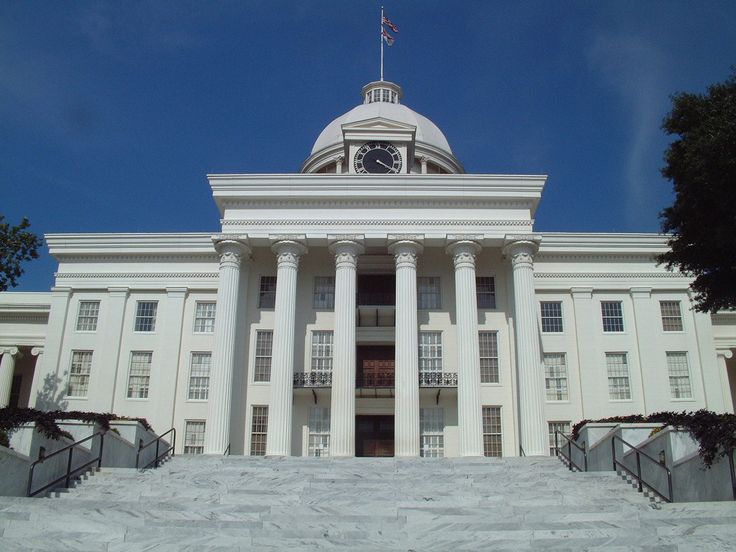
A lot has happened politically in the first quarter of 2019. The governor and all of our constitutional officials have been sworn in and have begun their four-year terms in office with Kay Ivey as Governor, Will Ainsworth as Lt. Governor, John Merrill as Secretary of State, John McMillan as State Treasurer, Rick Pate as Agriculture Commissioner, and Jim Zeigler begins his second term as State Auditor. More importantly, the State Legislature has organized and the Regular Session begins next week. They will be dealing with a myriad of major issues, not the least of which are the two state budgets. The Legislature is more important than who the Governor is in state government. The reason being is they appropriate the money. Those who have the gold make the rules. Another apropos adage is the Governor proposes but the Legislature disposes. The powers in the 35-member Senate are Senator Del Marsh (R-Anniston), Senator Greg Reed (R-Jasper), Senator Jabo Waggonner (R-Vestavia), Senator Arthur Orr (R-Decatur) and Senator Greg Albritton (R-Escambia). Orr and Albritton chair the Finance and Taxation Committees. The leadership of the House consists of Speaker Mac McCutchen (R-Madison), Representative Victor Gaston (R-Mobile), Representative Mike Jones (R-Covington), Representative Bill Poole (R-Tuscaloosa), and Representative Steve Clouse (R-Ozark). Poole and Clouse chair the Budget Committees in the House. All of the above lawmakers are Republicans. There is a super majority Republican domination in both Chambers. There are 77 Republicans in the House and only 28 Democrats. The State Senate is comprised of 28 Republicans with only 7 Democrats. There is only one white Democrat in the Senate. Senator Billy Beasley of Barbour, George Wallace’s home county. As predicted the 2020 campaigns have begun. We have a presidential campaign next year. It should be interesting. We also have a U.S. Senate race. Our anomaly, Democratic Junior U.S. Senator Doug “the California Kid” Jones will be running for a full term as a U.S. Senator. His philosophy and voting record more closely reflects a California senator than his Alabama counterpart, Senator Richard Shelby. He is truly unashamedly a Liberal National Democrat. He votes right down the line with the Liberal Democratic leadership in Washington. His voting record is identical to Chuck Schumer, Elizabeth Warren, and Bernie Sanders. It is more of a parody than anomaly that one of the most, if not the most conservative states in America would have a Liberal Democrat representing them in the U. S. Senate. Indeed Jones is the only Democrat in any Deep South state in the Senate. It would be safe to say that Jones will be the underdog next year. Unfortunately, for him, he more than likely will not have Roy Moore to run against. Although my guess is that Roy Moore might run. All of the early Republican entrees or prospects are up in age, which is not conducive to building seniority or power in the Senate. Roy Moore is over 70. State Auditor, Jim Zeigler is 70, Congressman Bradley Byrne is 63, and State Senator Del Marsh is 62. Byrne and Zeigler have significant name identification having run statewide and built a statewide organization. They would be the early favorites. Marsh can be a player if he is willing to spend his personal money. It would take $2 to 3 million to put him in the game. Lt. Governor, Will Ainsworth, would be the perfect choice to take the Jeff Sessions/Jones seat. He is 37 years old and could build power for the state in Washington. The Republican to watch, if he enters the Senate race, is Secretary of State John Merrill. He has a free shot. He has the best and broadest statewide grassroots political organization in modern Alabama political history. Nobody will come close to outworking him. The Presidential Campaign Caravan has begun. There are a host of Liberal Democratic Senators lining up. Liberal is the optimum word, but most would prefer to be labeled Socialists. Their states will give you an indication of their philosophical tint. Senator Kristen Gillibrand of New York, Senator Cory Booker of New Jersey, Senator Elizabeth Warren of Massachusetts and Senator Kamala Harris of California are seeking the Democratic nomination. A true Socialist Senator, Bernie Sanders, will more than likely join the fray. Also in is Julian Castro, who was Housing Director in the Obama Administration. His philosophy is akin to Fidel Castro. Doug Jones should run for president. His Senate voting record is just as liberal as the aforementioned other Democratic senators. He has a proven Civil Rights record and his fundraising base is built in California and New York. His odds are probably better for winning the Democratic nomination for President than being elected to a full term as a Democratic Senator from the Heart of Dixie. See you next week. Steve Flowers is Alabama’s leading political columnist. His weekly column appears in more than 60 Alabama newspapers. He served 16 years in the state legislature. Steve may be reached at www.steveflowers.us.
Sen. Bernie Sanders says he’s running for president in 2020
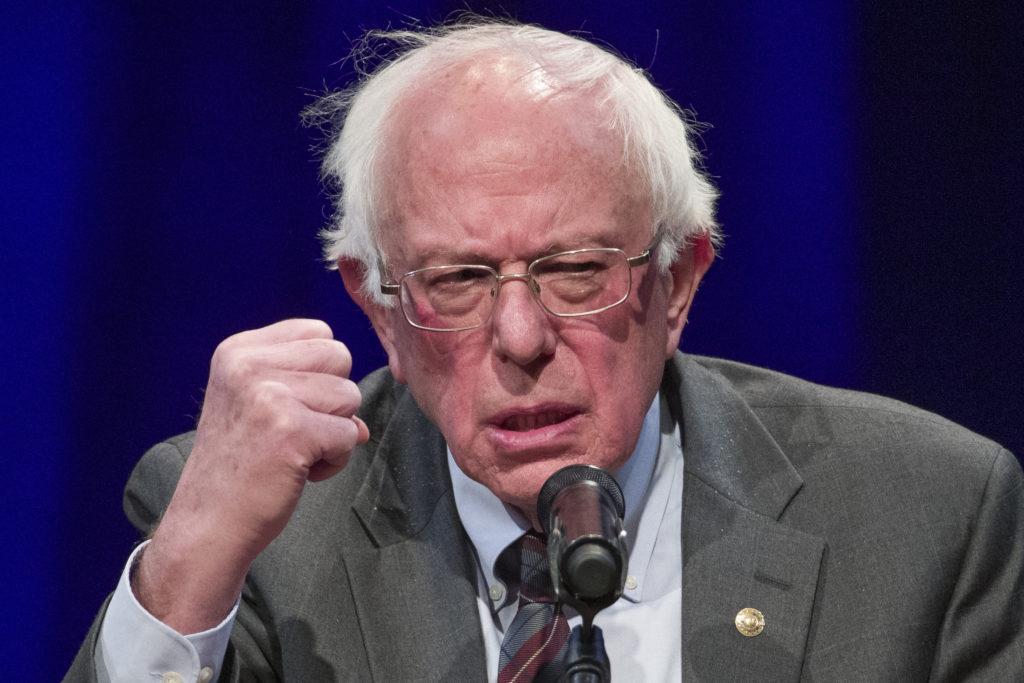
Vermont Sen. Bernie Sanders, whose insurgent 2016 presidential campaign reshaped Democratic politics, announced Tuesday that he is running for president in 2020. “Our campaign is not only about defeating Donald Trump,” the 77-year-old self-described democratic socialist said in an email to supporters. “Our campaign is about transforming our country and creating a government based on the principles of economic, social, racial and environmental justice.” An enthusiastic progressive who embraces proposals ranging from Medicare for All to free college tuition, Sanders stunned the Democratic establishment in 2016 with his spirited challenge to Hillary Clinton. While she ultimately became the party’s nominee, his campaign helped lay the groundwork for the leftward lurch that has dominated Democratic politics in the Trump era. The question now for Sanders is whether he can stand out in a crowded field of Democratic presidential candidates who also embrace many of his policy ideas and are newer to the national political stage. That’s far different from 2016, when he was Clinton’s lone progressive adversary. Still, there is no question that Sanders will be a formidable contender for the Democratic nomination. He won more than 13 million votes in 2016 and dozens of primaries and caucuses. He opens his campaign with a nationwide organization and a proven small-dollar fundraising effort. “We’re gonna win,” Sanders told CBS. He said he was going to launch “what I think is unprecedented in modern American history”: a grassroots movement “to lay the groundwork for transforming the economic and political life of this country.” Sanders described his new White House bid as a “continuation of what we did in 2016,” noting that policies he advocated for then are now embraced by the Democratic Party. “You know what’s happened in over three years?” he said. “All of these ideas and many more are now part of the political mainstream.” Sanders could be well positioned to compete in the nation’s first primary in neighboring New Hampshire, which he won by 22 points in 2016. But he won’t have the state to himself. Sen. Kamala Harris of California, another Democratic presidential contender, was in New Hampshire on Monday and said she’d compete for the state. She also appeared to take a dig at Sanders. “The people of New Hampshire will tell me what’s required to compete in New Hampshire,” she told shoppers at a bookstore in Concord. “But I will tell you I’m not a democratic socialist.” Sen. Elizabeth Warren of nearby Massachusetts will be in New Hampshire on Friday. One of the biggest questions surrounding Sanders’ candidacy is how he’ll compete against someone like Warren, who shares many of his policy goals. Warren has already launched her campaign and has planned an aggressive swing through the early primary states. Shortly after announcing her exploratory committee, Warren hired Brendan Summers, who managed Sanders’ 2016 Iowa campaign. Other staffers from Sanders’ first bid also have said they would consider working for other candidates in 2020. The crowded field includes a number of other candidates who will likely make strong appeals to the Democratic base including Harris and Sens. Cory Booker of New Jersey, Amy Klobuchar of Minnesota and Kirsten Gillibrand of New York. The field could also grow, with a number of high-profile Democrats still considering presidential bids, including former Vice President Joe Biden and former Texas Rep. Beto O’Rourke. While Sanders had been working to lay the groundwork for a second campaign for months, it was unclear whether he will be able to expand his appeal beyond his largely white base of supporters. In 2016, Sanders notably struggled to garner support from black voters, an issue that could become particularly pervasive during a primary race that could include several non-white candidates. Last month, he joined Booker at an event in Columbia, South Carolina, marking the Martin Luther King Jr. holiday. In 2016, Sanders lost the South Carolina primary, which features a heavily black electorate, by 47 points. Sanders also faces different pressures in the #MeToo era. Some of his male staffers and supporters in 2016 were described as “Bernie bros” for their treatment of women. In the run-up to Sanders’ 2020 announcement, persistent allegations emerged of sexual harassment of women by male staffers during his 2016 campaign. Politico and The New York Times reported several allegations of unwanted sexual advances and pay inequity. In an interview with CNN after the initial allegations surfaced, Sanders apologized but also noted he was “a little busy running around the country trying to make the case.” As additional allegations emerged, he offered a more unequivocal apology. “What they experienced was absolutely unacceptable and certainly not what a progressive campaign — or any campaign — should be about,” Sanders said Jan. 10 on Capitol Hill. “Every woman in this country who goes to work today or tomorrow has the right to make sure that she is working in an environment which is free of harassment, which is safe and is comfortable, and I will do my best to make that happen.” Republished with permission from the Associated Press.
Iowa Democrats propose ‘virtual’ caucuses in 2020

The Iowa Democratic Party on Monday proposed the biggest changes to the state’s famed caucuses in nearly 50 years by recommending Iowans be able to participate virtually. If approved, the measure would allow people to caucus using telephones or smart devices during the days leading up to the Feb. 3 caucus night. It’s a dramatic shift from the current system in which caucusgoers have to physically show up at a site — often a school, church or community center— and show their support for presidential candidates by standing in groups. If the group doesn’t meet an established threshold, the participants have to select another candidate. It’s an often chaotic process that plays out before banks of television cameras on an evening that formally ushers in the presidential primary season. But proponents say it will help address criticism that the caucuses are difficult to attend for single parents, people who work at night and the elderly. “Through this additional process we’re going to be able to give more Iowans a chance to participate in this process,” Iowa Democratic Party Chairman Troy Price said. “Whether someone is a shift worker, a single parent, in the military, living overseas or experiencing mobility issues, this process will now give these individuals a voice in selecting the next president of the United States.” And while Price says the proposed changes are the state party’s effort to open the process often described by critics as antiquated, it was also required by the Democratic National Committee. The results are Iowa Democrats’ attempt at threading the needle of complying while maintaining the essence of the caucuses, which are real-time meetings of fellow partisans. Presidential candidates are already beginning to swarm the state — three were here this weekend. They’ll likely try to determine whether a virtual caucus would help them turn out more of their supporters. “I suspect presidential campaigns who we’ve shared this information with are going to be trying to figure out how to get their members to participate in this,” Price added. Party officials said they didn’t know how many people would take advantage of the new format or how campaigns might seek to capitalize on it. A key element of the proposal, which now goes before Iowa Democrats to comment on for 30 days, is that, no matter how many Iowans participate virtually, their contribution will be factored as a flat 10 percent of the total turnout, apportioned by congressional district. Price said officials reached 10 percent as a starting point, uncertain of how many people might join virtually. “This is a new system so we don’t have any data to tell if this number is too high or too low,” Price said. “And so we are starting the conversation at the 10 percent threshold, and if it goes gangbusters this year, then we will have conversations in subsequent years about if we need to make adjustments.” Hillary Clinton, the 2016 Democratic presidential nominee who narrowly beat Vermont Sen. Bernie Sanders in Iowa that year, criticized the caucus process for deterring late-shift workers and others less able to steal away for an evening of political wrangling. “Campaigns must decide how to organize for that 10 percent,” said veteran Iowa Democratic caucus operative Jeff Link, who did not work for Clinton in 2016 and is not affiliated with a candidate heading into 2020. In another noteworthy development, the state party said it would release the raw data of preferences by caucusgoers, information that is typically kept confidential. The caucuses are a series of preference tests in which candidates without a certain level of support are rendered unviable. This data would give a first glimpse of the candidates’ support before caucusgoers abandon their first choices to side with more viable contenders. The Iowa caucuses are scheduled for February 3, 2020. The proposal won’t be finalized until the spring. Republished with permission from the Associated Press
Terri Sewell says she is ‘biased’ towards sorority sister Kamala Harris
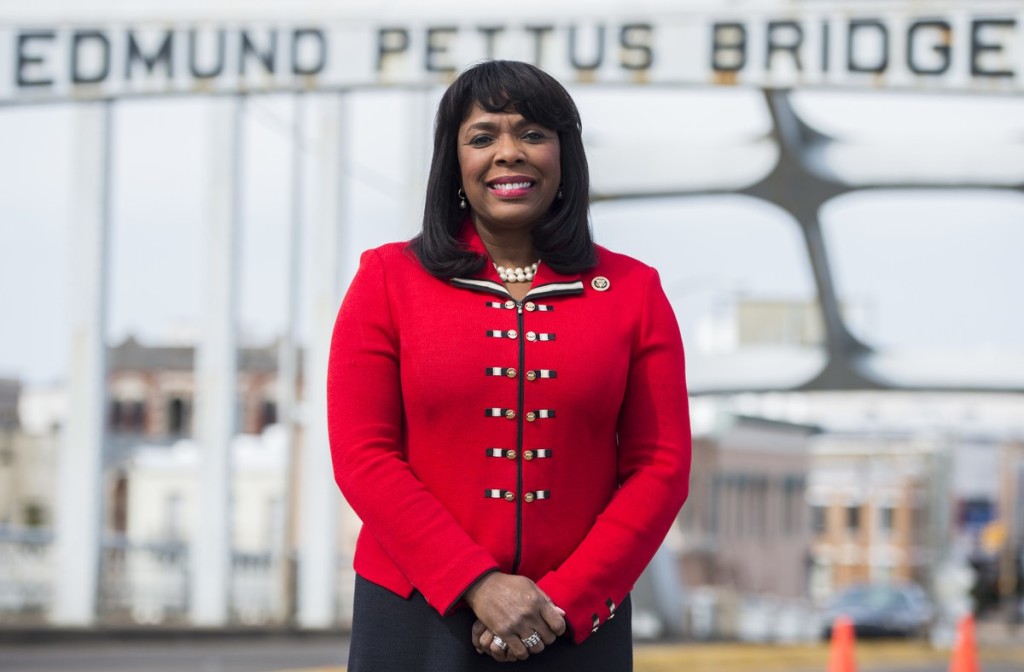
Hoping for support in their bid for the 2020 Democratic nomination, both New Jersey senator Cory Booker and Kamala Harris, a senator from California, have been campaigning heavily among the Congressional Black Caucus (CBC). Alabama 7th District U.S. Rep. Terri Sewell has admitted she is “biased” towards Harris, as they were both members of the same African-American sorority, Alpha Kappa Alpha, The Hill reports. However, she hasn’t ruled out supporting Booker. “I think it’s awesome we have so many amazing choices,” Sewell said. Last year, when Harris spoke at the 25th Annual Selma Bridge Crossing Jubilee commemorating the 53rd anniversary of the Selma-to-Montgomery March, she spoke of Sewell. She said that those who originally marched “laid the foundation so that John Lewis and Terri Sewell and Barbara Lee can serve in the United States Congress. To carry on the work.” Sewell, Alabama’s first black Congresswoman, has previously said that black women are crucial to Democratic success. When Senator Doug Jones won the special election in 2018, she told the Chicago Sun-Times that black women had been “the backbone of the Democratic Party for a long time and we’re finally getting our due, There were a whole bunch of people he doesn’t even know that did a whole bunch of work to help him get there.” Another “rising political star” bringing black women together is Stacey Abrams, who will be delivering the Democratic response to Donald Trump‘s upcoming State of the Union Address. Sewell shared her excitement about this choice on Facebook, saying “Stacey Abrams reflects our party’s shared values of equality and inclusion and is a brilliant choice to give the democratic response to the State of the Union.”


